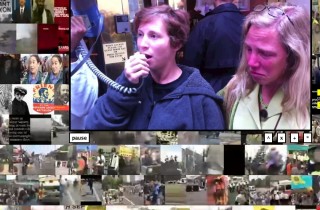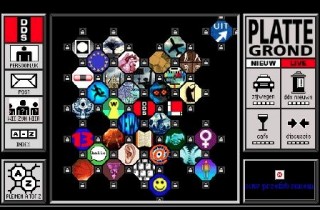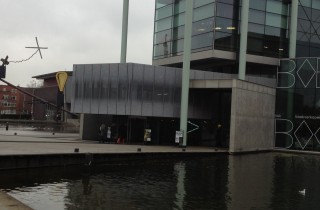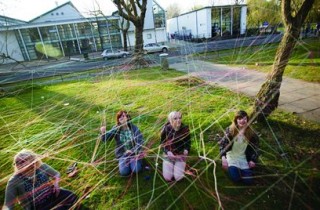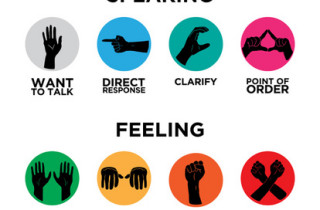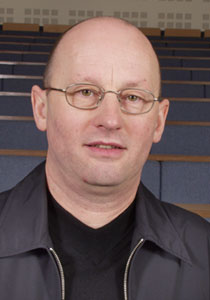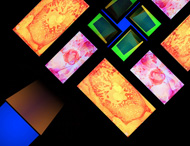Lev Manovich famously described new media artifacts as “interfaces to databases”, using Ervin Panovsky’s classic text “perspective as symbolic form” he introduced the concept of the “Database as Symbolic Form”. In this formulation the data base was no longer viewed simply as an expedient storage and management tool but as… read more →
Happy Birthday Amsterdam Digital City..”it was 20 years ago today”.. This week there are anniversary celebrations for Amsterdam’s Digital City. Where the screen design alone captures that dream-like moment when some imagined they would leave the material world (known at the time as “meat space”) and set up residence in a… read more →
Between 15th and 18th the Post Media Lab (a collaboration between Leuphana University and Mute Magazine) are concluding the first phase of their collaboration with a workshop designed to address fundamental changes in processes of archiving and the care of objects… The workshop is testing the limits or archival practice, sometimes seeking to extend (or… read more →
As the dust settles on the radical transformation (read slash and burn) of the cultural landscape of the Netherlands we can begin to see the outline of an experimental framework with some potential. One of the most significant elements of this emerging cultural space became visible with the launch in… read more →
One of the unintended consequences of the grand experiment incorporating colleges of art and design into universities, were the different kinds of opportunities and pressures on academic staff who suddenly found themselves part of Russell Group Universities. In this interview with two leading researchers at Winchester College of Art, Ryan Bishop,… read more →
“Claims about ‘horizontalism’ and the use of terms such as ‘leaderlessness’ to describe the nature of contemporary revolutionary politics…are” declares Paolo Gerbaudo in a recent posting entitled Roots of the Coup, “..empirically flawed”. But are we ready for such a definitive conclusion? In a public discussion at the LSE in 2012… read more →
Facebook Court is a social experiment by artist Martin Butler to see if it is possible to create a model for online legal discussion, using Facebook as a democratic social and legal tool. Through its “sharing”, “liking”, debating and commentary, Facebook allows for an ease of opinion and view points to be… read more →
Professor Stephen Scrivener has long been at the forefront of the incorporation of practice lead research and doctoral programs into the art school. In the first of a series of in depth interviews with leading researchers we took the opportunity to take stock 20 years after the experiment began when… read more →
We do not yet know the future of research funding for the arts and humanities in the UK. But the likelihood is that a new regime will emerge that will be more experimental in how it builds partnerships both inside and outside of the academy. One possible direction of travel… read more →
